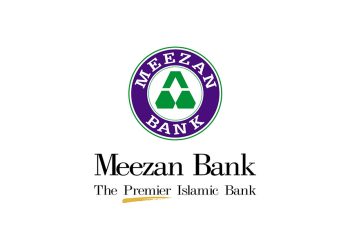The IMF Executive Board has given its approval for a disbursement of roughly $700 million to Pakistan, a sign that the country’s ongoing economic reform programme is being evaluated favourably. Though economic activity has levelled off, ongoing difficulties still need to be addressed by strong policies that are implemented well.
Macroeconomic conditions exhibit improvement, projecting a two percent growth in FY24. The fiscal position strengthened in 1QFY24, achieving a primary surplus of 0.4% of GDP, driven by robust revenues. Despite elevated inflation, a decline is anticipated with a judiciously tight monetary policy, aiming for 18.5% by end-June 2024.
The State Bank of Pakistan (SBP) witnessed an increase in gross reserves to $8.2 billion in December 2023, contributing to a stable exchange rate.
PAKISTAN STOCK MARKET
Following the approval of the second loan tranche, which injected $700 million, by the International Monetary Fund (IMF), the Pakistan stock market (PSX) began trading on a positive note. Though investors were initially optimistic, they erased earlier gains in the second half of the session due to profit-locking, and the benchmark KSE-100 index ended the day flat at 64,637.64, up just 20.07 points or 0.03% from the previous day.
The index moved in a range of 865.77 points during the session, peaking at 65,356.85 (+739.28) points intraday and falling to 64,491.08 (-126.49) points intraday. The KSE-100 index saw 402.906 million shares traded overall.
IMF
IMF’s Deputy Managing Director, Antoinette Sayeh, underscores the need for “continued strong ownership to maintain momentum in stabilizing Pakistan’s economy.” While acknowledging the authorities’ efforts in revenue performance and federal spending restraint, challenges such as provincial spending pressures demand ongoing attention. Sayeh emphasises the importance of broad-based fiscal reforms to generate additional revenues and enhance public financial management.
A high rate of inflation that impacts vulnerable groups is one of the challenges mentioned in the IMF’s statement. In order to rebuild foreign exchange reserves and emphasise the importance of an exchange rate set by the market, the SBP’s strict stance is considered appropriate.
Addressing undercapitalized financial institutions and ensuring financial sector vigilance are highlighted as essential for sustained stability. Sayeh stresses the imperative of job creation and inclusive growth, calling for the protection of vulnerable groups through programs like BISP.
Structural reforms, improvement in the business environment, and expeditious restructuring of state-owned enterprises (SOEs) are also stressed by the IMF. This suggests a focus on enhancing efficiency, which may entail privatizing loss-making enterprises. Governance enhancement, anti-corruption measures, and climate resilience are outlined as key drivers for Pakistan’s economic progress.
Given that investors are expecting another IMF bailout, Pakistan’s dollar bonds have a positive outlook that is closely tied to the story of broader economic progress. The commitment to IMF programmes and possible reforms, like modifying fuel and electricity prices, are what make investors find the bonds appealing even after a notable increase in 2023.
DR. SHAMSHAD AKHTAR
The successful completion of the first review of the International Monetary Fund (IMF) loan programme signalled a moment of pride for Dr. Shamshad Akhtar, the Caretaker Minister for Finance, Revenue, and Economic Affairs. The accomplishment, praised by the IMF Executive Directors, permits an instant payment of about $700 million, demonstrating global trust in Pakistan’s dedication to economic reforms.
Despite acknowledging improved macroeconomic conditions, the IMF remains cautious about the challenging economic outlook, emphasizing the continued significance of Pakistan’s ongoing economic reform program to navigate uncertainties successfully.
Simultaneously, Dr. Akhtar celebrated another milestone with the launch of the National Credit Guarantee Company Limited (NCGCL), a pioneering joint venture between the Ministry of Finance and Karandaaz.
NCGCL is positioned to spearhead a shift in the SME landscape as the country’s first specialised credit guarantee company for SMEs. With the goal of addressing market issues that the SME sector faces, such as unequal financial distribution and information asymmetry, NCGCL works with financial institutions to establish stronger mitigation mechanisms and enhance credit availability.
While Dr. Akhtar’s address highlighted the hurdles faced by SMEs in Pakistan, such as systemic market risks and a concentration in the informal sector, it also shed light on the pivotal role SMEs play in the country’s economy.
With the SME sector contributing to 90% of formally registered businesses and around 40% of the GDP, the inadequate investment in this sector has been identified as a hindrance to Pakistan’s sustainable growth.
As the country endeavors to align its private sector credit allocation with the South Asian average, this blog post underscores the transformative potential of economic reforms and initiatives like NCGCL in fostering inclusive and resilient economic growth.



















